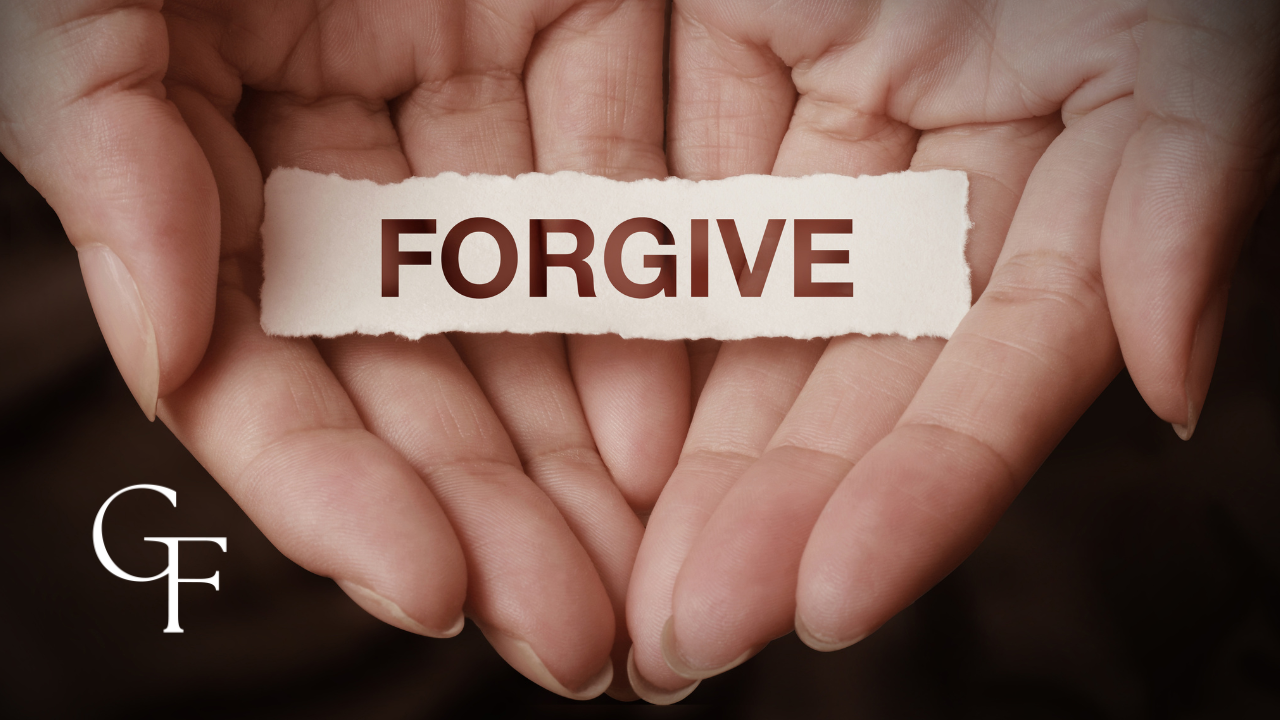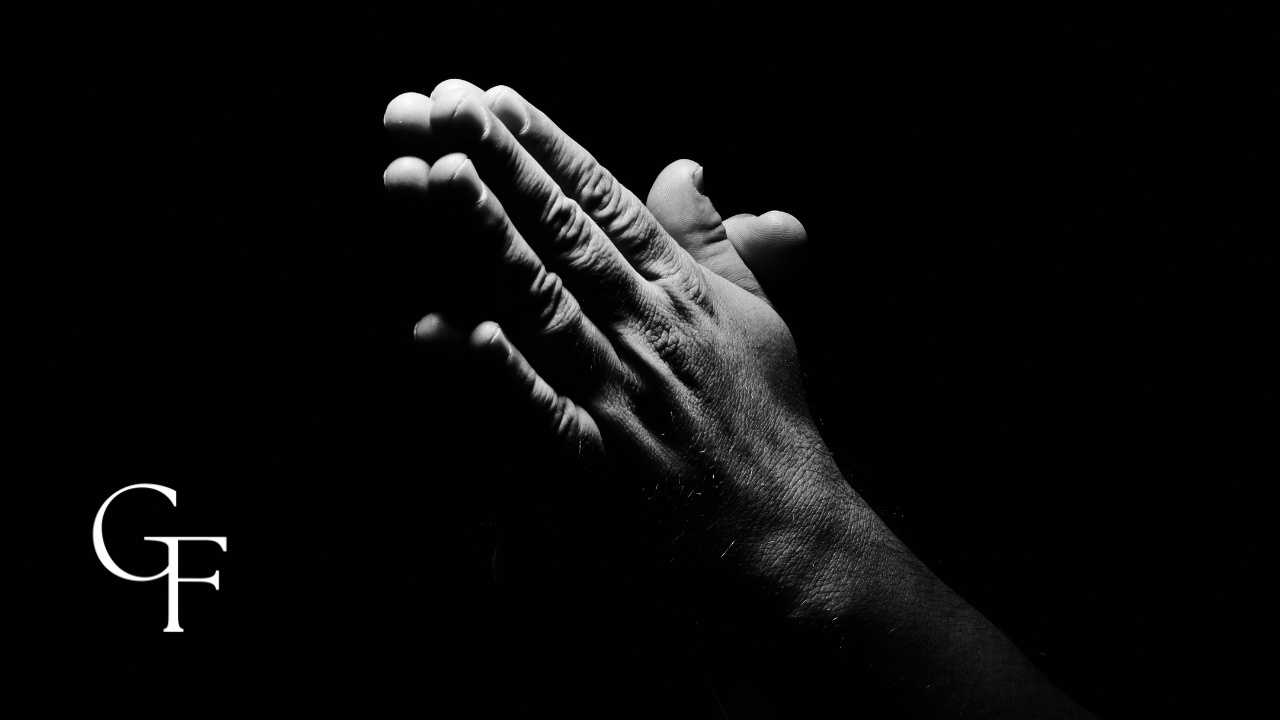
Understanding Forgiveness
In chapter eighteen of Matthew's Gospel, Peter approaches Jesus and asks:
The number seven is significant in the Bible, symbolizing wholeness, fullness, and perfection. This number appears multiple times throughout the scriptures, from Jesus's "I am" statements in John's Gospel to its symbolism in the seven-day creation story from Genesis and its further reference in the Book of Revelation.
For context, Peter's question is equally significant to a Jewish man of this period and is certainly not random.
Jesus responds to Peter:
Why Should We Forgive?

Jesus's answer is not meant to be taken literally (though seventy-seven could be considered significant).
Instead, He attempts to convey that we must forgive others infinitely because God's abounding love and forgiveness for mankind never ends.
Regardless of how frequently we choose to sin, Jesus's sacrifice on the cross remains powerful enough to forgive us in perpetuity.
Tyler Staton from Bridgetown Church in Portland, Oregon, says it well:
Forgiveness is the choice to absorb the debt of another by bearing it yourself.
Following His response to Peter in Matthew chapter eighteen, which directs how often we should forgive others, Jesus provides a parable of an unforgiving servant:
A single talent represented about as much money as a low-level laborer could make in twenty years. That's right—when tallied up, it becomes a laughable amount.
Jesus continues with the parable:
A denarii was equal to a single day's wage for one day's work. One hundred days of work represents a much more reasonable debt to pay off, yet the unforgiving servant's heart is too hard to offer forgiveness.
In this tragic parable, the first servant who begs forgiveness from his master is forgiven his debts but is quick to turn around and demand that another servant pay him a lesser debt.
The master represents God, and the two servants symbolize humanity in some capacity.
Jesus tells His followers to forgive those who have transgressed against them because God's forgiveness of us is tied to our forgiveness of others.
God commands forgiveness because He has forgiven you and me. Again, we all need a level of forgiveness that we can never genuinely earn but is freely given as a gift from our Creator.
The Gospel story is ultimately one of forgiveness. It shows how God forgives humanity for our sins by coming to earth as a human in Jesus and absorbing our debt to Him.
As Jesus was being nailed to the cross by the Romans in a painful and humiliating fashion, He cried out to God, pleading for Him to forgive the very people who were wrongfully killing Him.
We inhabit a world of consequences, and living outside of Eden has grave repercussions.
The punishment for sin is death, and if God is a righteous judge, He must judge righteously. This means we must accept the rightful consequences for sinning against Him.
After all, being righteous and good is part of God's character; to uphold equity and fairness within the universe, He must act in line with His justice.
We humans are so flawed and sinful that we can never meet the high standards that God upholds and sets forth. He stands to gain nothing from helping us become right with Him through the forgiveness process, and yet we stand to gain everything by being united with Him in His Kingdom.
If God were evil and cruel, He would not provide a feasible solution for our forgiveness. Instead, God entered the fabric of humanity, experiencing suffering and temptation by living among us as a man in the form of Jesus, who taught and guided us to establish a better way of living, only to die at the hands of guilty people for those very same people.
The Price of Unforgiveness (Effecting Mental and Physical Health)

Unforgiveness hinders our ability to receive the healing balm that restores ourselves and the wounded world.
Unforgiveness often leads to bitterness and resentment, which can cause physical stress in the form of elevated vitals or the release of numerous chemicals that, over time, can negatively affect our physical, mental, and even spiritual health.
One might argue that harboring bitterness and unforgiveness towards others makes the body vulnerable to attacks by the enemy (Satan), and I certainly concur.
But forgiveness isn't just about protecting ourselves from the harmful effects of unforgiveness. It is also about preventing us from continuing to participate in the same sin that broke our world to begin with.
If I do not forgive, it consumes me from within, affecting not only my health but also the well-being of my relationships with others and, eventually, my spiritual connection with God.
Sin occurs when we follow our "own way" instead of trusting God's way, and unforgiveness is not aligned with God or His Son, Jesus.
I understand; however, things can become quite complicated when we reflect on moments when forgiving someone for unspeakable atrocities, evil, or injustice may seem to "cheapen" our pain.
So what are we to do?
Justice vs. Forgiveness

The tension between justice and forgiveness is difficult to unpack. For centuries, mankind has struggled to find a fair way of administering justice.
In Western culture, the concept of justice aims to achieve equity, which is frequently driven by anger or outrage as the primary motivator.
The final outcome is not the issue.
After all, the Bible teaches of a God who is very interested and passionate about balancing the cosmic scales to restore equity and achieve justice in the universe.
And He promises to do so...
But God's motivation for achieving justice matters most because justice without forgiveness is simply not Christ's way.
As part of Jesus's famous Sermon on the Mount, He teaches us to "pray like this," telling us to:
The implication is that we owe something to God, and others owe us something.
Once more, equity is important to God because we are owed for the wrongs inflicted upon us by others. However, the path to achieving that equity should not involve anger, wrath, or hurt.
Retributive Justice Leads to Nowhere
Retributive justice demands equity but results in further inequity in the world around us. Moreover, it disrupts our sense of inner peace because it is motivated by wrath or bitterness.
Anger can sometimes be constructive as it often responds to injustice, but when pursued by a sinful people (of which we all are), it becomes difficult to administer justice rightfully, as our hardened hearts often become even harder after experiencing the actions of those who trespass against us.
Tyler Staton from Bridgetown Church, again:
Miroslav Volf says it best:
God reminds us that "vengeance is His" and His alone (Romans 12:19). Yet, we often become so enthralled by retribution that we allow our emotions and desires to govern our actions.
And do you know what?
I get it.
I experience it for myself...
At times in my life, I feel that forgiving another person or a group of people would only diminish or perhaps invalidate the pain I carry in my heart. Maybe you understand what I mean—that gut-wrenching sensation of hurt that cuts so deeply to create intense suffering.
However...
Forgiveness Is Suffering

Often, suffering wrestles us to the ground. Some may never regain solid footing, and even those who do tend to walk with a limp.
Regardless of the pain we inevitably endure from the wrongful acts of others, God does not promise to remove our suffering permanently; instead, He assures us that it will be redeemed.
Jesus teaches that the only path to the Kingdom of Heaven, a place entirely free from sin, suffering, and evil, is through the cross.
The cross is the ultimate symbol of forgiveness, embodying God's self-sacrificial purpose to ensure He does not abandon humanity.
However, it is the only way Jesus could create space within Himself to welcome us back into His family and redeem us.
Jesus willingly took our sins upon Himself so that we could be reconciled with God the Father and not be forced to pay an unpayable debt.
Forgiveness can be painful and often carries a cost to us, just as it did for God.
The great Dietrich Bonhoeffer expressed it beautifully:
Redemptive Justice Is the Way of Jesus
Redemptive justice begins with forgiveness and results in true equity and inner peace.
God enters into suffering through Jesus to establish a meaning significant enough to bear the weight of our suffering. In doing so, only He can truly redeem us from the pain we have endured from others, imposed upon them, or inflicted upon ourselves.
5 Steps to Forgive Amidst Negative Feelings

Step #1: Acknowledge the Hurt
Whatever has happened to you likely hurts. It may be a little or perhaps a lot.
It's okay to feel pain and to acknowledge that we are "not okay."
However, we cannot linger in the depths of despair and stay emotionally destitute.
Ultimately, we must accept the hand that Jesus extends to humanity and allow Him to lift us out of the hole we sometimes find ourselves in.
God wants us to share our pain with Him and be truthful about it. He loves us and longs for time together, especially when we suffer or feel even more broken by our fractured world.
Forgiveness will ultimately hurt, and often, it will cost us something, just as it cost God a piece of Himself when He gave His Son as a ransom for the world.
Step #2: Acknowledge Christ's Sacrifice
From Tyler Staton, again:
No earthly restitution can truly alleviate or cover the pain or damage caused by the offender. We cannot remove our pain, but Jesus promises to redeem it if we "take up our cross" and follow Him.
This suggests that the only way to enter the good Kingdom described by Jesus throughout His life is through the path that hurts.
Step #3: Reconcile (If Possible) With the Other Person
Despite the sometimes intense emotional pain, it is often ideal to reconcile with the other person or group of offenders if possible.
I acknowledge that the person's actions may have caused a significant emotional burden. However, redemptive justice must begin with forgiveness as its foundation because God will not forgive us if we do not genuinely forgive others.
If we want to experience the Kingdom of Heaven on earth right now, we must relinquish our demand for retribution and instead embrace the freedom of forgiveness through the cross.
If you cannot reconcile with the other person or people for some reason (e.g., proximity or unawareness of location), do your best to do so through prayer. Speaking of which...
Step #4: Pray for the Other Person

Unforgiveness hinders our relationship with God by affecting our prayer life in monumental ways. Thus, the Bible instructs us to forgive before we pray so that our prayers and prayer life are not arrested.
Before we pray, we must search our hearts for any anger and bitterness toward the offenders in our lives.
Once we have acknowledged the hurt, recognized what Jesus has done to forgive us, and attempted to reconcile with the offenders (if possible), we must engage in meaningful prayer.
I'd be lying if I told you that I didn't have a hard time doing this for myself, but my thoughts, feelings, and opinions on such matters don't change the fact that forgiveness is essential for a meaningful prayer life.
Step #5: Establish Healthy Boundaries

A boundary indicates where we end and where others begin, leading us to a sense of ownership.
Boundaries help us maintain the good and keep out the bad. Setting boundaries inevitably involves taking responsibility for our choices.
We are the ones who make choices for ourselves.
We are the ones who must live with the consequences.
We may also be the ones who hinder ourselves from making choices that we can truly be happy with.
Dr. Henry Cloud expresses this best in his book, co-authored with Dr. John Townsend, titled Boundaries:
Remember, we forgive because we have been forgiven; God's forgiveness always exceeds any measure of humanity's wrongdoing.
Step #6: Move Forward

You're still feeling hurt, or perhaps you're just feeling angry.
I understand, but it's a vast world out there, filled with many broken lives in desperate need of the healing balm that restores each of us and the world we inhabit.
No more making excuses. It's time to dust ourselves off, put one foot in front of the other, and flick Satan off the shoulder where he perches, whispering lies into our ears.
Draw upon the power of Christ and remember what He accomplished in His death. Bear your cross, move on, and move forward. There is much work to be done.
Step #7: Learn & Reflect

No, we can never forget what has happened to us because the anger and hurt are too intense.
But remember, you are loved beyond measure by a God whose heart breaks for you when you suffer. He knows that you don't just need healing but rather a healer in the form of Jesus, who is the bread of life that breaks for each of us in a world hellbent on breaking our hearts to pieces.
Process, learn, reflect on, and most importantly, pray to God about what ails you, always bringing your pain to Him. He may not remove it from you, but He promises to redeem it.
More Than Just Mental Health...
Forgiving others can often be one of the most challenging tasks you face.
True forgiveness requires surrendering your own life to Jesus, for only He can satisfy our deepest needs.
Forgiveness can be painful, but it is the only path to true justice; therefore, it remains Jesus's way.
Christ promises us that the righteous wrath of God will one day bring about a world completely free of sin, suffering, and evil.
Children will no longer go hungry or die in the womb; brothers and sisters will no longer take each other's lives, and people from first to third-world nations will not endure the harsh ravages of relentless disease.
That world is coming and is available to anyone who seeks it.
In the meantime, let go of blame, bitterness, and resentment. Instead, find the courage to show empathy and compassion, even to those who might wrong you.


